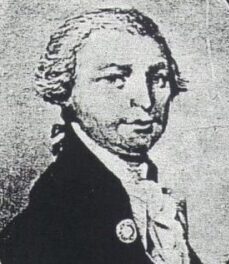Cicero, the Baker
Sir,
My Baker Cicero whom you Engagd some time ago for a Year will be ready to wait upon you when he returns from Ch City, Please do Let me know if you will then be ready for him. his Wages as I told you is £30. Clear of any deduction this I thought proper to mention, that there may be no misunderstanding about the Terms.
I am Sir
Your mo hum Servt
Ann Kennon
th16 Augt 1763
The above is a letter written by Ann Hunt Kennon, wife of Richard Kennon (himself a grandson of the first Richard of Conjurer’s Neck), to Theodorick Bland of Cawsons. The original of this letter is housed at the Virginia Museum of History and Culture in Richmond, Virginia. Richard and Ann lived at Old Brick House, Richard having inherited it from his father, William Kennon. Cicero was the baker for the Kennon family at Old Brick House. As was common with skilled enslaved people, Cicero was rented out to Theodorick Bland for his services. The price of £30 for his labor in 1763 was not a small sum. In today’s U.S. dollars, this would equate to just under $7,600.
Seeing as Cicero had been previously rented out to Mr. Bland, he was likely a very skilled baker. In the colonial era, plantation owners often hosted large elaborate dinners. Guests who came could stay for a day, a few days, or even weeks. This required having skilled cooks and bakers as the meals included multiple courses. Dinners, the largest meal of the day and usually occurred around two or three in the afternoon, included multiple types of meats, vegetables, and desserts.
Though being a baker was a more ideal position to have in a plantation society rather than having to work in a field from sunup to sundown, it was still a tough job. Early on, kitchens were attached to homes, but later, to prevent fires in the main house, kitchens were later built as separate buildings. These kitchens were often hot as a fire was almost always burning in the fireplace and stoves. On a hot summer day, that would have made for an uncomfortable work environment, especially considering enslaved people were clothed in a low-quality textile that was rough and course. The work of being a cook or baker was physically demanding as well. Depending on the demands of the day, cooks and bakers would most often be up before dawn to start preparing the meals for the day.
Enslaved cooks and bakers contributed much to southern foodways which evolved into much of our cuisine of today. Cicero was one of the many enslaved people who helped contribute to the development of those southern foodways. For more information on Cicero, click the following link for an article written about him: https://www.toddsarchives.com/unknown-to-known-how-cicero-gained-his-identity/.
References
Kennon, Anne Hunt. “Theodorick Bland, Bland Papers, 1713-1825. Section 2.” Call number Mss1B6108 a20, 1763.
